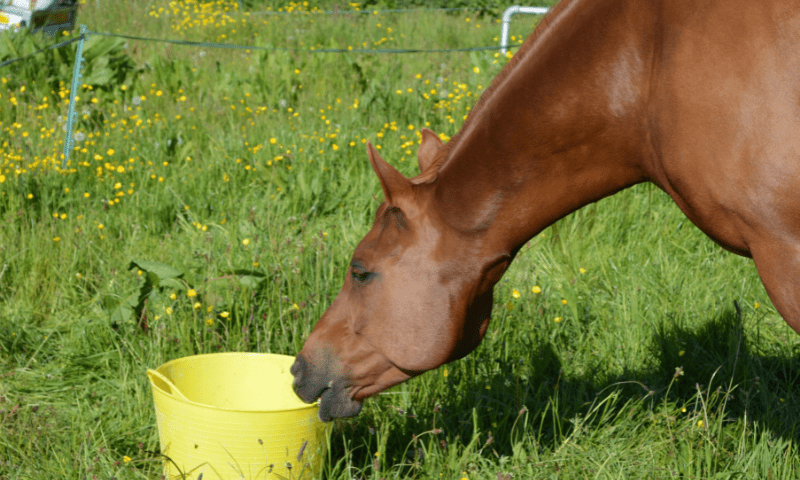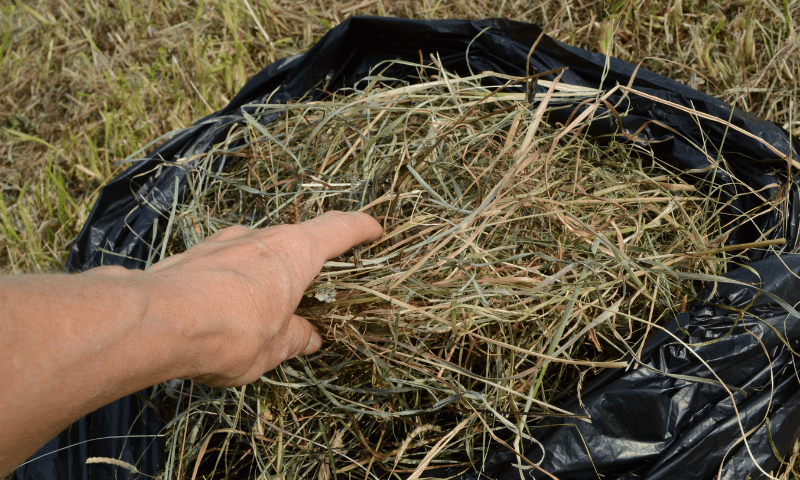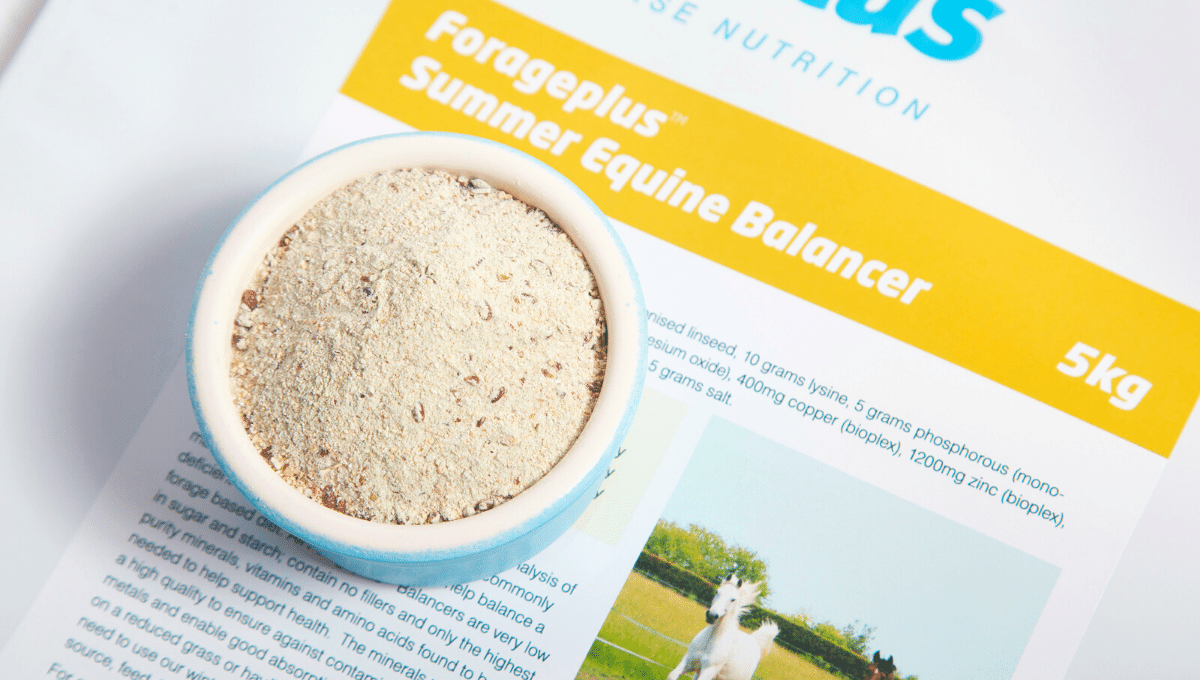In the world of equine health, the role of probiotics and prebiotics is increasingly gaining recognition. Our article, “Probiotics for Horses”, delves into the fascinating realm of these beneficial microorganisms, exploring their definitions, the advantages they confer, and the circumstances that necessitate their supplementation.
We will also shed light on the specific situations that may warrant the need for probiotic support. As we navigate through the complexities of the horse’s digestive system, we will uncover how these tiny organisms can make a significant impact on the overall health and well-being of your equine companion.
Incorporating probiotics into your horse’s diet is key to promoting overall gastric health, optimizing digestion, and enhancing nutrient absorption, thereby supporting the stability and function of the gut.
What are Probiotics for Horses?
Probiotics for horses, comprising live microbes such as bacteria and yeast, are administered daily to horses to bolster their populations of beneficial organisms, including good bacteria. These probiotics, containing live bacteria, play a crucial role in maintaining a healthy gut by defending against harmful pathogens.
By promoting a balanced microbiome, probiotics enhance digestive efficiency, improve nutrient absorption, and support the overall immune system, contributing to the horse’s optimal health. They have been demonstrated to have a positive effect on intestinal function and health in general.

What is the Equine Microbiome
When a foal is born, its intestinal tract is sterile and it begins to pick up bacteria with everything its mouth touches. Some of these bacteria survive the stomach acid to take up residence inside the intestines. Maintaining a balanced and healthy gut flora is essential for optimizing digestion, nutrient absorption, and the overall well-being of horses.
The equine microbiome refers to the community of microorganisms, including bacteria, fungi, and yeast, that reside in the horse’s digestive tract, particularly in the hindgut which comprises the cecum and large intestine. These microorganisms play a crucial role in the horse’s ability to extract nutrients and energy from high-fiber diets.
Horses are classified as hindgut fermenters, meaning that the fermentation of ingested fibre primarily occurs in their large intestine (colon) and cecum. Billions of bacteria are involved in the digestion of plant fibres and starches, simplifying them into molecules that the horse can absorb and use.
These microorganisms are tasked with the breakdown of structural carbohydrates such as cellulose and hemicellulose, transforming them into volatile fatty acids (VFAs) that are then absorbed through the intestinal wall. The VFAs produced by the microbes can meet up to 42% of the horse’s energy requirements.
In addition to VFAs, gut microbes synthesize several B vitamins, such as folate (Vitamin B9) and Vitamin K, which are absorbed and utilized by the horse. The most abundant bacterial phyla in the horse’s gut are Firmicutes and Bacteroidetes, but the equine microbiome also includes yeast species such as Saccharomyces boulardii and various fungi.
Research analysing the gut microbiomes of individual horses has shown significant variability in microbial profiles, which can influence the horse’s overall condition and health.
To define a “normal” gut microbiome, one study collected faecal samples from seven horses every two weeks over a year. These horses were maintained on the same grass paddock throughout the year, with no additional concentrate feed or supplements. Even in this natural setting, minor shifts in the gut microbiome were continuously observed, but no clinical signs of dysbiosis were detected.
The relationship between the horse’s body and the microbes inhabiting the intestinal tract is intricate. The horse presents them with food and can use the byproducts of fermentation as an energy source. The burden on a horse’s digestive enzymes can be lessened by organisms in the stomach and small intestine that are capable of utilising sugar and starch.
It’s important to note that each horse has a unique microbiome, much like a human fingerprint. This means that even horses living in the same conditions and eating the same diet can have very different microbiome compositions. This variability can influence the horse’s overall condition and health.
How do Probiotics for Horses Work?
The gastrointestinal microbiota is extremely important for horse health. There are four main areas where probiotics for horses will support and maintain equine health.
- A healthy microbiome will produce substances which make the colon less hospitable to pathogenic bacteria. These substances include lactic acid and acetic acid which lower the pH of the gut.
- A healthy microbiome, supported by probiotics for horses, can also produce specific enzymes and natural antibiotics which can kill unwanted bacteria trying to colonise the digestive system.
- Probiotics for horses help stimulate immune system cells to produce beneficial compounds and important antibodies which support the horse’s natural defence system against infection.
- Probiotics help create substances which can bind toxins before they have a negative effect on the cells in the body.
What are the Benefits of Probiotics for Horse Gut Health?
Probiotics offer several benefits for maintaining a healthy digestive system. They help in building strong populations of beneficial bacteria or yeast inside the horse, which can have a positive effect on intestinal function and health in general, contributing to overall gut health.
They can improve fibre digestibility and buffer acid pH. Certain strains like Lactobacillus and Saccharomyces yeast have been shown to benefit horses.
Probiotics for horses can be particularly helpful in certain situations such as after antibiotic use, in horses performing extremes of speed or endurance exercise, after long-distance shipping, in older horses having trouble holding weight, and in horses with suboptimal hindgut fermentation.
They can also be beneficial for horses with evidence of irritation to the lining of the intestinal tract, supporting a healthy mucosa and promoting a healthy stomach. However, it’s important to note that if the horse is already utilising its diet well with no gastrointestinal issues, probiotics for horses may not be necessary.
- Producing Antimicrobial Substances: Probiotics generate specific enzymes and antibiotics that directly kill harmful bacteria.
- Combating Pathogenic Bacteria: They inhibit the growth of pathogens through competitive exclusion, binding to the gut wall and blocking pathogenic bacteria from doing so.
- Enhancing Intestinal Function: Probiotics improve fibre digestibility and overall intestinal health, playing a crucial role in horse digestion.
- Supporting Cell Health: They aid in the maturation and division of gut cells, ensuring a healthy turnover of these cells which typically live around 3 days.
- Stimulating Immune Responses: Probiotics stimulate nearby immune cells to produce antibodies and other beneficial compounds, enhancing the horse’s natural defences.
- Anti-inflammatory Effects: They prevent misguided immune responses and protect the gut from inflammatory conditions like enteritis.
- Protecting Against Toxins: Probiotics can bind and inactivate toxins released by pathogenic bacteria, preventing these toxins from harming other cells.
- Benefiting Specific Situations: Probiotics are particularly helpful after antibiotic use, during extreme exercise, after long-distance shipping, in older horses with weight issues, and in horses with suboptimal hindgut fermentation.
- Supporting a Healthy Mucosa: They help maintain healthy mucosa, especially in horses showing signs of intestinal tract irritation.
- Lowering Gut pH: Probiotics produce lactic acid and acetic acid, lowering the gut pH to create an inhospitable environment for pathogenic bacteria.

What are some examples of probiotics for horses?
Some examples of probiotics for horses include Lactobacillus bacterial strains and Saccharomyces yeast, which have been shown to benefit horses. Incorporating a gut balancer into their diet can further stabilize the gut, improve digestion, and ensure the absorption of essential nutrients is optimised.
Specific strains such as L. reuteri and L. salivarius are beneficial for the upper part of the digestive tract, while L. equi, a horse-specific strain, is beneficial for the hindgut. Gut balancers are particularly effective in these areas, addressing digestive problems and aiding recovery from illness or changes in feed/grazing.
Other important bacterial strains include Bacillus subtilis, which favours the growth of beneficial bacteria over pathogens, and Propionibacterium freudenreichii, which metabolizes lactate and helps control pH. These strains are essential for maintaining a healthy gut bacterial environment.
The yeast Saccharomyces cerevisiae is perhaps the best-researched equine probiotic of all, assists fermentation with any type of diet and should be a prominent ingredient in all equine probiotic products. The inclusion of prebiotics in a horse’s diet is also crucial for promoting the health of existing microbes in the horse’s digestive tract.
Under what circumstances might a horse’s hindgut benefit from probiotic supplementation?
Dysbiosis, or a disruption in the balance of the microbiome in horses, can be indicated by several signs. This is when probiotics for horses may be useful. These may include changes in appetite, weight loss, changes in the consistency or colour of the horse’s manure, and signs of colic such as restlessness, pawing at the ground, or rolling.
In addition, horses with dysbiosis may show signs of bloating or inflammation, as the microbiome plays a crucial role in the horse’s immune function and gut wall integrity. Stress can also disrupt the microbiome, leading to potential signs of dysbiosis.
Probiotics for horses may be beneficial in the following cases, as they can help to restore the balance of beneficial bacteria in the horse’s gut:
- After antibiotic use, antibiotics can disrupt the balance of the gut microbiome.
- Horses with bloating or abdominal discomfort where shifts in the microbiome cause gas buildup. These horses might show behavioural and sensitivity when being handled.
- For horses performing extremes of speed or endurance exercise.
- After and during long-distance travel, as these situations can stress the horse’s gut and its digestive system.
- For horses having trouble maintaining weight which is related to poor digestion of feed due to an imbalance of microbes.
- For old horses with suboptimal hindgut fermentation.
- For horses that have undergone digestive disturbances following incidents like heat stroke, intense endurance training, long-haul transportation, malnutrition/starvation, fasting, or gut problems such as colic or colitis.
- When changes in the microbiome affect fluid content pulled into the intestine leading to diarrhoea or constipation. This could also be related to changes in gut motility.
- For horses being dewormed with anthelmintics. Probiotics for horses before and after worming can be beneficial for microbiome health and balance.
- Poor condition of teeth in horses has been associated with imbalances in the microbiome.
- Horses eating very short-cropped grass are likely to have changes in the microbiome due to grazing in close proximity to the soil for long periods of time. Where this grazing is compacted the problem is likely to be exacerbated. This is particularly common in good doers and laminitis prone horses on very restricted grazing.
- When a high starch load affects the behaviour of a horse, so it is more agitated, reactive and unsettled
- When horses are experiencing high-stress situations. Several research studies have shown changes to the microbiome due to the stress of unfamiliar environments, fasting, surgery and performance competition.
However, it’s important to note that every horse has a unique microbiome, like a human fingerprint, and what works for one horse may not work for another.
If you see any of these signs in your horse, they could indicate disrupted gut function. There are many potential causes of gut dysfunction in horses, but a common contributing factor is the environment your horse is exposed to and how the daily diet is composed.

Are there any potential side effects of adding good bacteria through probiotic supplementation for horses?
In the delicate realm of equine health, particularly concerning foals with their immature digestive systems, probiotics for horse supplementation warrant careful consideration. The right probiotics need to be used for foals to avoid negative effects.
While probiotics for horses are generally safe, incorrect strain usage may precipitate adverse gastrointestinal reactions, particularly perilous in the fragile gut environment of foals. Moreover, over-supplementation can provoke digestive distress.
Each horse is unique, requiring tailored probiotic approaches. Taking into account individual factors like age, health, and existing gastrointestinal conditions is important. Additionally, the gradual introduction and vigilant monitoring of probiotics for horses can mitigate the risk of digestive disturbances, a particularly pertinent concern given foals’ susceptibility to such issues.
Despite promising benefits indicated by some studies, there remains a need for cautious evaluation, as conflicting research highlights both potential advantages and risks associated with probiotic intervention, particularly concerning foal diarrhoea management.
Summary
In our journey through the realm of “Equine Probiotics,” we’ve discovered the profound impact these microscopic allies can have on the health of our horses. They fortify gastric resilience and facilitate seamless digestion. However, caution is paramount when dealing with juvenile horses possessing delicate digestive systems.
Selecting appropriate probiotics for horses and vigilantly monitoring for any gastrointestinal disturbances is crucial. As we continue our exploration, let’s remain optimistic yet prudent, particularly when addressing the needs of foals with digestive discomfort.
Benefits of probiotics for horses
- Promote gastric health, optimize digestion, and enhance nutrient absorption.
- Defend against harmful pathogens and support a balanced microbiome.
- Improve fibre digestibility, lower gut pH, and enhance the immune system.
Specific Situations for Use of Probiotics for Horses
- Post-antibiotic treatment, extreme exercise, long-distance shipping.
- Older horses with weight issues, and horses with suboptimal hindgut fermentation.
- Indications of gut irritation or dysbiosis.
Examples of Probiotics for Horses
- Lactobacillus strains, Saccharomyces yeast, Bacillus subtilis, and Propionibacterium freudenreichii.
- Horse-specific strains like L. equi for hindgut health.
Considerations when Using Probiotics for Horses
- Tailored approaches based on individual horse needs.
- Gradual introduction and monitoring to prevent digestive distress.
- Potential risks and benefits, especially in foals with immature digestive systems.
Unsure what to feed?
Receive a bespoke feed plan for your horse from one of our equine nutritionists.






